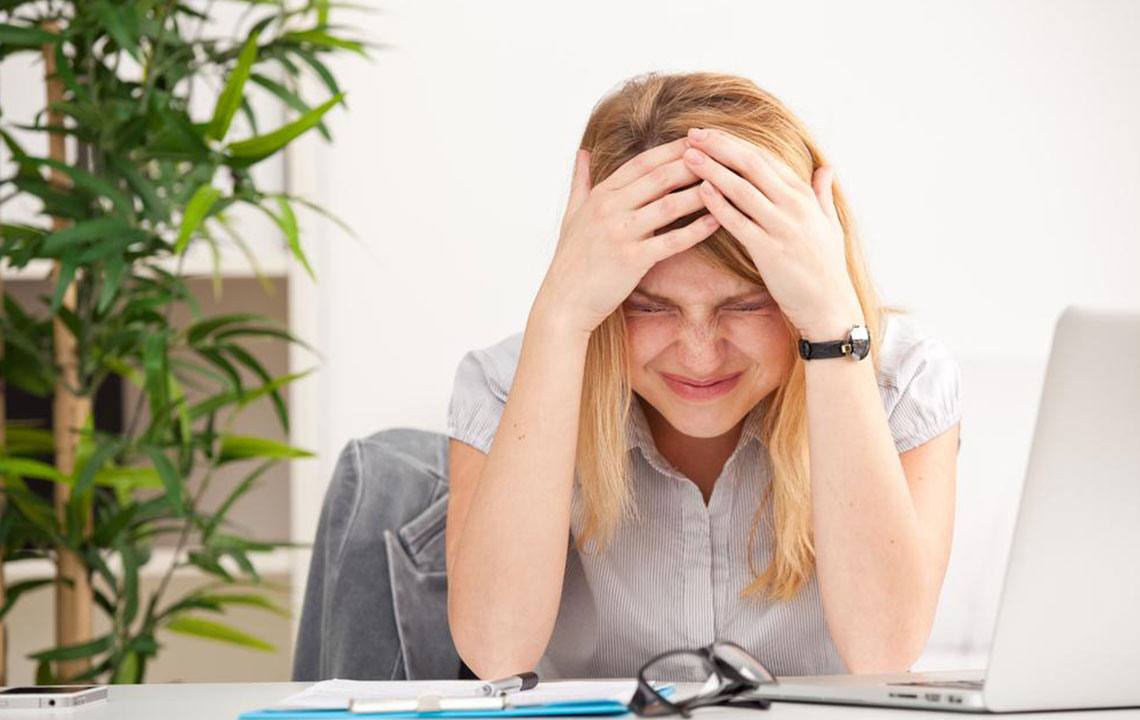A Few Common Causes and Triggers that Induce Migraine Attacks
The exact cause or trigger of a migraine is not known to anybody. However, doctors and healthcare professionals believe that there are many factors that can lead to a migraine attack. Some of the most common triggers are discussed in details below:
Stress
A significant increase or decrease in psychological or physical stress is reason enough to trigger a migraine. Danish researchers found out that the onset of migraine attacks in most patients have been a result of stress.

Jet lag or lack of sleep
One of the most common factors of a migraine is sleep disturbance. Insufficient sleep is often the reason for acute migraine attacks. Excessive sleeping also causes a migraine. Jet lag and change in your sleeping time due to changes in work schedule also trigger a migraine. People who are suffering from chronic migraine experience insomnia as well. Chronic migraine patients with insomnia are at high risk of depression and anxiety. All these conditions have sleep disturbance in common. Thus, many people get relief from migraine pain when they get sound sleep.
Food additives
There are certain food items as well which trigger a migraine. The flavor enhancer monosodium glutamate or MSG and the artificial sweetener aspartame can cause a migraine. However, experiences with aspartame have given conflicting results. The possible effects thus remain unresolved among migraine patients. There are some cases which show that patients suffering from clinical depression have experienced worse symptoms after the consumption of aspartame.
Many people believe that MSG triggers headaches. However, controlled research has not found any concrete link between MSG consumption and headache or any other health conditions. However, a recent study revealed that MSG can trigger pain and headache in the face and head. Thus, it would be wise to avoid MSG.
Hunger or dehydration
Migraine patients should avoid skipping meals. Research shows that skipping meals invariably leads to the onset of a migraine. However, the reason remains unknown. It is probably related to depleting blood glucose levels. Dehydration is also a possible trigger of a migraine. Not drinking enough water in a day triggers the onset of a headache. In a small survey conducted among migraine patients, it has been found that insufficient fluid intake has resulted in a headache in 40% of the people.
Highly caffeinated beverages
Experts are of the opinion that the consumption of caffeine trigger migraine. Thus, it is important to monitor your intake of tea, coffee, energy drinks, and soft drinks. Caffeine levels are extremely high in energy drinks. According to some researchers, caffeine withdrawal also triggers a headache. Experts warn against the excessive consumption of caffeine. It is also to be noted that several OTC headache formulas contain a significant amount of caffeine. A recent study has concluded that a medicine combining aspirin, acetaminophen, and caffeine worked better to cure a migraine headache than ibuprofen.
Medication overuse
Medication overuse is a common factor that causes a migraine. Especially people who overuse analgesics are likely to develop a chronic migraine from occasional migraines. Overuse leads to frequent headaches as well as greater pain. However, it is unknown why the overuse of analgesics triggers a migraine. Medicines that fall in the opioid class also lead to the development of a chronic migraine.
Alcohol
Alcohol is one of the most common triggers of alcohol. A recent Brazilian study showed that about one-third migraine patients suffer from the condition when they consume alcohol. Red wine is believed to trigger a migraine more than any other alcoholic beverages, especially in women.
Strong or odd smells
Most people suffering from migraines have issues with unusual or strong smells since these trigger headaches in them. For them, perfume is a common trigger. There are people who become intolerant of any kind of smell when they are under migraine attack. This problem is called “osmophobia” which is unique to people suffering from a migraine. Many people going through a migraine episode find food smells, cigarettes smoke, and scents or odor really difficult to tolerate. A recent study has proved that migraine patients suffering from osmophobia are at high risk of suffering from depression and anxiety.
Loud sounds and bright lights
Many people say that their migraine is triggered by bright, pulsating, or flickering lights and loud sounds. Even a brief encounter with sunlight triggers a migraine in some people. However, it is possible that sunlight may not be the primary trigger. Sun exposure can only trigger a migraine if the person had wine the previous night. He may also be sleep deprived, had low blood sugar level for skipping a meal, is dehydrated, stressed when he stepped out in the sun or got exposed to bright light or sound. Thus, it can be said that sunlight is a secondary trigger.

